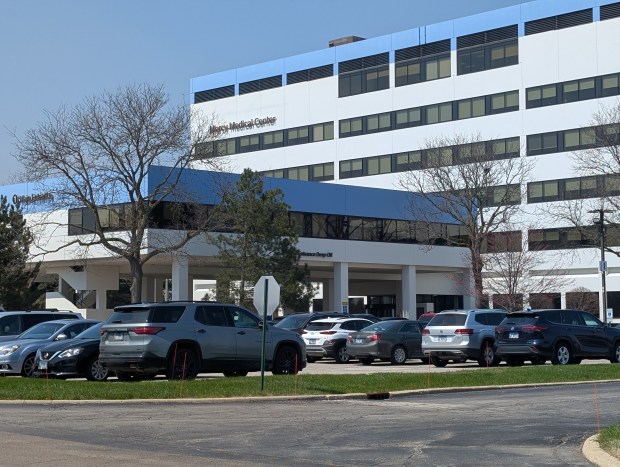Trump administration edicts were woven like a thread through Thursday’s Northwestern Indiana Regional Planning Commission meeting as the commissioners weighed how to continue pursuing local governments’ values without jeopardizing grants.
Director of Transportation Tom Vander Woude ran through changes in an update of last year’s Unified Planning Work Program, which outlines information about transportation spending. Among the language changes were removing tasks associated with climate change. And rather than referencing executive orders that relate to issues like environmental justice, the document now refers to the original legislation that prompted the executive orders that had been issued.
President Donald Trump’s flurry of executive orders so far this year have reversed previous presidential edicts aimed at preventing climate change or promoting diversity, equity and inclusion.
Gary Councilwoman Lori Lathan, newly appointed to the commission, kick-started a discussion of how the agency can continue to push for things like air quality improvement without referring to climate change or otherwise running afoul of Trump’s edicts.
“When they say advice, is that something that we’re required to make those changes,” she asked.
“Do we have to do them? Yes, we kind of do,” Vander Woude said, because those federal agencies oversee grants.
Various memos and formal communications with the U.S. Department of Transportation, all contracts and grant agreements have to comply with the new standards, he said.
Latham asked why the NIRPC document approved Thursday would refer to the legislation instead of executive orders.
The executive order related to environmental justice, for example, was rooted in civil rights legislation from the 1970s, Vander Woude said, so the document can refer to discrimination based on that legislation.
Congress makes laws; executive orders deal with how agencies implement them but don’t reverse the laws themselves.
Regarding climate change, NIRPC will focus on air quality rather than climate change.e
Under the Biden administration, there had been a movement for greenhouse gas analysis, but that since has been stopped by the Trump administration, so NIRPC and other agencies can’t do that anymore, Vander Woude said.
If organizations like NIRPC can’t enact programs to protect constituents, who will, Beverly Shores Town Council President David Phelps asked.
Lake County Surveyor Bill Emerson Jr., who chairs NIRPC’s Environmental Committee, said a resolution proposed by his committee and unanimously adopted at the meeting addresses this issue.
The resolution, on page 380 of a massive agenda packet for the meeting, noted that the U.S. Environmental Protection Agency had announced the cancellation of over 400 grants, the effects of which are still being figured out.
The resolution says NIRPC “reaffirms its commitment to protecting and improving environmental quality of life in Northwest Indiana including, but not limited to, improving air quality including greenhouse gas reduction, community tree planting initiatives, brownfield redevelopment, environmental justice capacity planning and natural hazards readiness planning.”
Vander Woude said even though the bulk of NIRPC’s work involves channeling federal funds for local governments in Lake, Porter and LaPorte counties, the agency also serves as a council of governments.
NIRPC can still pursue those activities without using federal funds to do so, Executive Director Ty Warner said.
Impacts like resiliency, previously directly tied to climate change, can still be examined. “The issues related to resiliency persist regardless of where they can be tied to climate change,” Vander Woude said. “You can deal with the impact; you can’t necessarily draw it back to that.”
That’s getting the job done without semantics getting in the way, Porter County Council President Andy Vasquez said.
“I think that’s exactly what we’re trying to do,” Vander Woude said. “We can describe it in various ways, but ultimately it’s about moving forward our vision, our values.”
“I think we’re going to have to be creative if we’re going to maintain our environmental justice and social justice focus,” Chesterton Councilman Jim Ton said. “If you don’t proceed with some of this, it’s going to be gone forever.”
That’s focusing on the end result without attributing it to causes, Warner said. “We’re focusing on the end result, not any ideological issues.”
NIRPC deals with local priorities as well as federal priorities, Vander Woude said. “We’re responsive to both.”
“I personally don’t see substantial changes in the actual work being done,” he said.
Lake County Councilman Randall Niemeyer urged the commission to focus on the nuts and bolts and stay out of the weeds on this issue. “It’s more window dressing than anything with the rhetoric,” he said. Focus on projects that have good results for the region, he said.
Doug Ross is a freelance reporter for the Post-Tribune.



